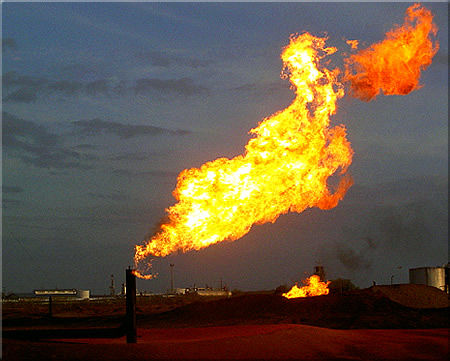Nigeria is losing not less than $2bn (approximately N320bn) to gas flaring annually, seasoned environmentalist and delegate at the ongoing national conference, Mr Nnimmo Bassey, said on Tuesday.
Bassey told the News Agency of Nigeria (NAN) that the loss of such huge revenue due to the activities of oil companies constitutes an economic crime.
He argued that the flared gas has a negative impact on the environment and the health of people in the area, especially as it triggers lots of terminal diseases.
“This gas that is being flared in the oil fields equally impacts human health, as it causes acid rain, cancer, breathing difficulties, skin and other diseases such as bronchitis and asthma,” he said.
Advertisement
“Communities have experienced a drop in agricultural yields when you get nearer to gas flaring fields. You have to be as far away as at least one km to expect to have fair yields from your crop, because some of this gas is being flared in communities.”
The delegate also said that the committee had made far-reaching recommendations aimed at protecting the country’s environment from danger including outlawing gas flaring which was adopted by the conference.
“We recommended a situation where there will not be an option of fine on gas flaring, but the activity will be branded as criminal. We cannot kill our people on the altar of cash; we need to have an environment where people will survive,” he said.
Advertisement
Bassey also said that conference adopted the committee’s recommendation to strengthen the Act establishing the Nigerian Environmental Standards Regulation and Enforcement Agency (NESREA).
“To add insult to injury, there sits on the board of NESREA the oil and gas industry people. How could you have oil and gas sector, the most polluting sector in the Nigerian environment, not being regulated by the major regulatory agency and you then have the same pollutants seating on the board of that agency?” he queried.
“So, the committee recommended that that gap should be closed, that NESREA should be empowered to oversee and regulate the entire Nigerian environment, including the oil and gas sector.”
Advertisement
Add a comment






